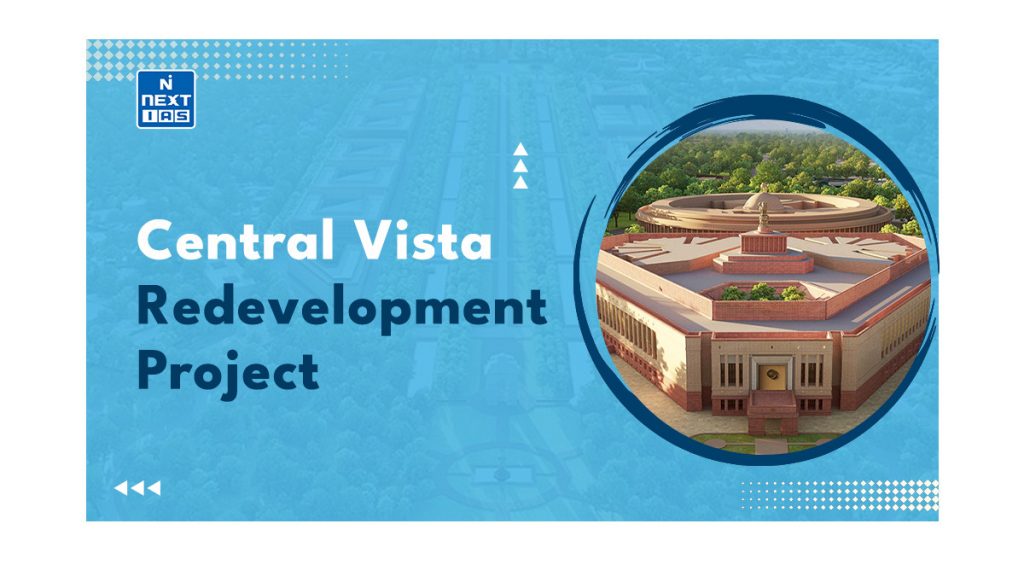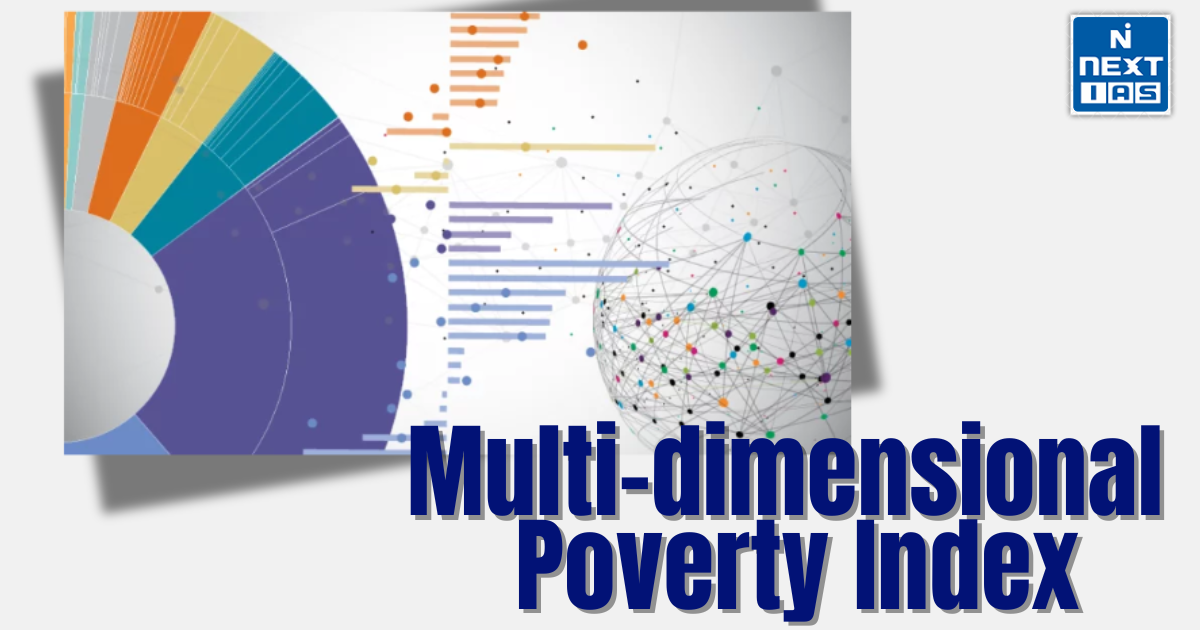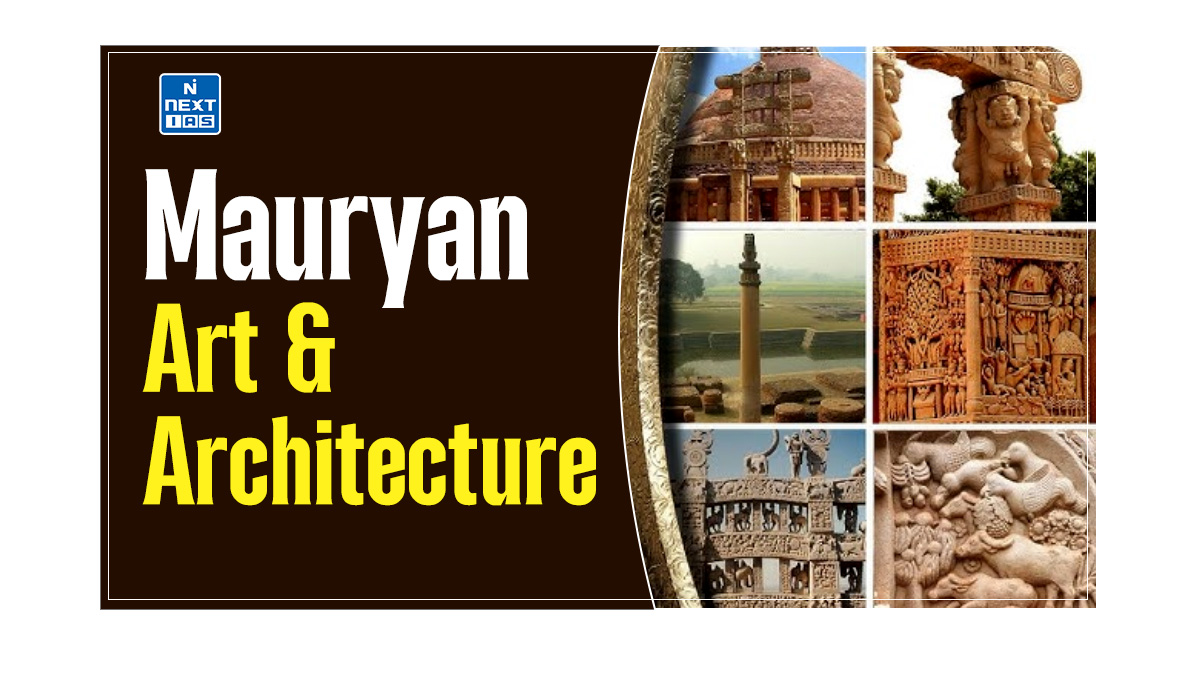
Central Vista Redevelopment Project is a proposed project of the Government of India to revamp the Central Vista Complex – the administrative heart of India, located in Lutyens’ Delhi. In a nutshell, the plan aims to change the face of Lutyens’ Delhi, which was originally designed by Edwin Lutyens and Herbert Baker during the British era.
About the Central Vista Complex
Central Vista Complex, roughly, refers to the 3.2 km stretch in Delhi from Rashtrapati Bhawan to India Gate. The area houses some of the most important administrative institutions in the country, including the Prime Minister’s Office, making it the administrative center of our country.
Central Vista Avenue forms a part of the Central Vista Complex and comprises the Rajpath (now renamed as Kartavya Path) and India Gate lawns. As the site of the annual Republic Day Parade, it is one of the most important roads in Delhi.
History of Development of Central Vista Complex
In 1911, King George V made an announcement in Delhi Durbar to shift the capital of India from Calcutta to Delhi. Following this, the Central Vista Complex was envisaged by the British as the center of administration in India. The British architects Edwin Lutyens and Herbert Baker designed it in a way to house all the facilities needed for the efficient functioning of the British Government.
As inaugurated in 1931, the original Central Vista Complex included the Rashtrapati Bhavan, North and South Blocks, the Parliament House, the Record Office (later renamed The National Archives) along with the India Gate monument and the civic gardens on either side of the Rajpath. Post-independence, some more government buildings were constructed in this area to cater to the increased demand for office spaces for the Central Government Ministries.
About the Central Vista Redevelopment Project
As the name suggests, the proposed Central Vista Redevelopment Project aims to redevelop the Central Vista Complex. The overall aim of the project is to strengthen governance infrastructure by building new facilities for various institutions of the Government of India.
Central Vista Redevelopment Project – Basic Facts
| Piloting Ministry | Ministry of Housing and Urban Affairs |
| Estimated Cost | Roughly around ₹20,000 crore |
| Launch Year | 2019 |
| Estimated Year of Completion | 2026 |
Major Developmental/ Redevelopment Works Proposed Under the Project
- Construction of a new Parliament Building, new residences and offices for the Hon’ble Vice President of India and the Prime Minister of India, a Common Central Secretariat, a Central Conference Centre, etc.
- Refurbishment of the Central Vista Avenue.
- Relocation and transfer of Hutments in around 90 acres to newly built locations.
- Demolition of some existing structures such as the Indira Gandhi National Centre for the Arts, National Museum, Vigyan Bhawan, etc
- Conversion of some of the older structures into museums.
The New Parliament Building
- The New Parliament Building has been constructed as a part of the Central Vista Redevelopment Project and was inaugurated on May 28, 2023.
- With a proposed increase in the number of MPs, the new parliament building aims to meet the future needs for spaces
- The sitting capacity of the new Lok Sabha Chamber is 888, whereas that of the new Rajya Sabha Chamber is 384.
- Unlike the old parliament building, it does not have a central hall. Instead, the new Lok Sabha Chamber itself can accommodate 1,272 MPs in case of a joint session.
- Unlike the circular old Parliament Building, the new Parliament Building is triangular.
- This triangular shape ensures optimum space utilization along with reflecting the symbolic significance of the sacred triangular geometry in various religions.
- Though Delhi comes under Seismic Zone 4, the new parliament building is designed to resist earthquakes as per Seismic Zone 5.
- Built using green construction techniques, the new Parliament Building a fully Green Building.
- It is supposed to reduce electricity consumption by 30 percent, compared to the old one.
- Also, rainwater-harvesting and water-recycling systems have been installed on its premises.
- To ensure enhanced safety, its walls have been made blast-resistant.
- The new Parliament building also incorporates regional arts, crafts, and cultural features to eloquently reflect the vibrancy and diversity of contemporary India.
Objectives of the Central Vista Redevelopment Project
- Restoring the Original Symmetry of the Central Vista: With new construction post-independence, the original geometrical symmetry of the Central Vista Complex was disturbed. The redevelopment project aims to restore the original symmetry while protecting the heritage of the old buildings.
- Strengthening the Functioning of the Legislature: The construction of a new state-of-the-art Parliament Building equipped with the latest technologies and meeting the need for the expanded space will help strengthen the functioning of the Legislature.
- Construction of Adequate and Secure Spaces for Executive Offices: As part of the project, modern and secure buildings are being constructed to house offices for the PMO, Cabinet Secretariat, etc.
- Improving Productivity and Efficiency of Administration: As part of the project, new office spaces for the Union Ministries are being planned in a way to improve coordination, collaboration, and synergies. This will help improve the overall productivity and efficiency of the government.
- Rejuvenation of Cultural and Heritage Facilities: The project plans to construct a new building for IGNCA. Also, the refurbishment of the North and South Blocks to house the National Museum has been envisaged under it.
- Ensuring Environmental Sustainability and Expanding Public Space: Along with using Green Technology for the construction of new buildings, the project plans to create some green spaces such as the New India Garden, National Biodiversity Arboretum, etc. This will ensure environmental sustainability along with expanding public spaces.
- Promoting Transit-Oriented Development: The new buildings of the Central Secretariat have been planned in such a way that they will be connected to each other as well as to the Delhi Metro Network and the City’s Bus Network via a secure underground people mover. This will increase the use of shared public transit facilities, thus reducing overall emissions and air pollution in Delhi.
Benefits of the Central Vista Redevelopment Project
- Governance Benefits
- Accommodating all the Central Government Ministries in connected Common Central Secretariat buildings will allow for seamless coordination among them as well as easy movement of personnel, documents, and goods. This will help increase administrative efficiency.
- The residences and offices of the Vice President and the Prime Minister are being constructed in proximity to the new Parliament and Common Central Secretariat. This will help in addressing security and logistic arrangements for the movement of the dignitories, without interfering with the regular traffic movement.
- Environmental Benefits
- By opting for transit-oriented development, the project will promote the use of public transport. This, in turn, will help reduce the use of personal vehicles and hence overall emissions.
- Green spaces being developed as part of the project will increase the overall green cover of Delhi.
- Cultural Benefits
- Some of the important heritage buildings of India, currently, are under severe stress. The project plans a comprehensive upgrade of these buildings through appropriate retrofitting
- With architectural centrality at its heart, the project aims to restore Central Vista’s original geometrical symmetry and architectural character.
- The planned construction of a new building for IGNCA and the conversion of some old buildings into museums will help in the preservation of heritage and cultural artifacts.
As our country moves towards realizing New India’s Vision 2047 during the Amrit Kaal, the Central Vista Redevelopment Project is the need of the hour. Along with improving administrative efficiency, this project will go a long way in creating some architectural icons. This project could be well summarised as strengthening India’s vibrant democracy as well as cultural heritage.
GS - 1





